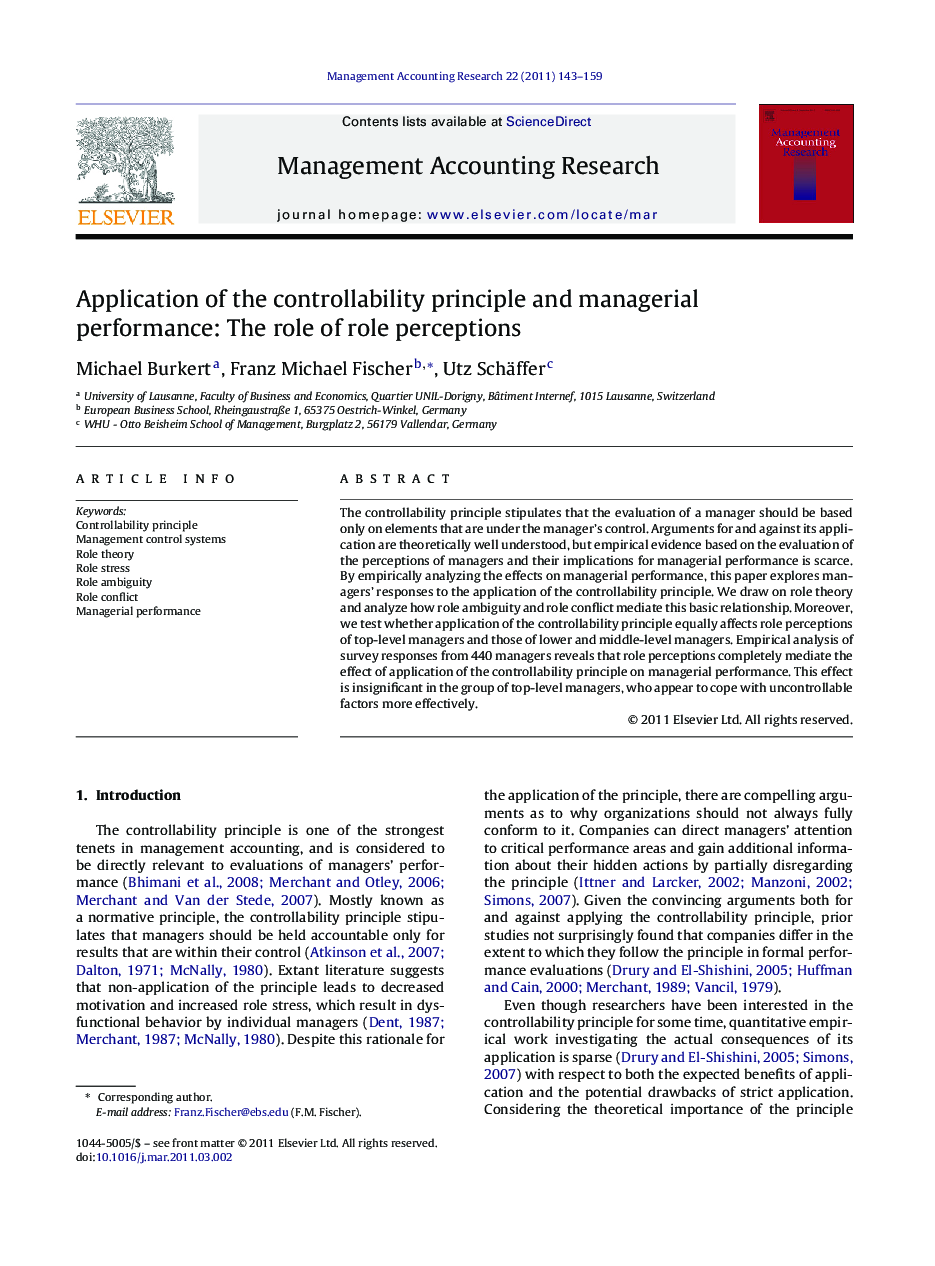| Article ID | Journal | Published Year | Pages | File Type |
|---|---|---|---|---|
| 1002852 | Management Accounting Research | 2011 | 17 Pages |
The controllability principle stipulates that the evaluation of a manager should be based only on elements that are under the manager's control. Arguments for and against its application are theoretically well understood, but empirical evidence based on the evaluation of the perceptions of managers and their implications for managerial performance is scarce. By empirically analyzing the effects on managerial performance, this paper explores managers’ responses to the application of the controllability principle. We draw on role theory and analyze how role ambiguity and role conflict mediate this basic relationship. Moreover, we test whether application of the controllability principle equally affects role perceptions of top-level managers and those of lower and middle-level managers. Empirical analysis of survey responses from 440 managers reveals that role perceptions completely mediate the effect of application of the controllability principle on managerial performance. This effect is insignificant in the group of top-level managers, who appear to cope with uncontrollable factors more effectively.
► This paper analyzes managers’ responses to the application of the controllability principle. ► Role ambiguity mediates the effect of application of the controllability principle on managerial performance. ► This effect is found to be insignificant in the group of top managers. ► Top managers deal with uncontrollable factors more effectively.
